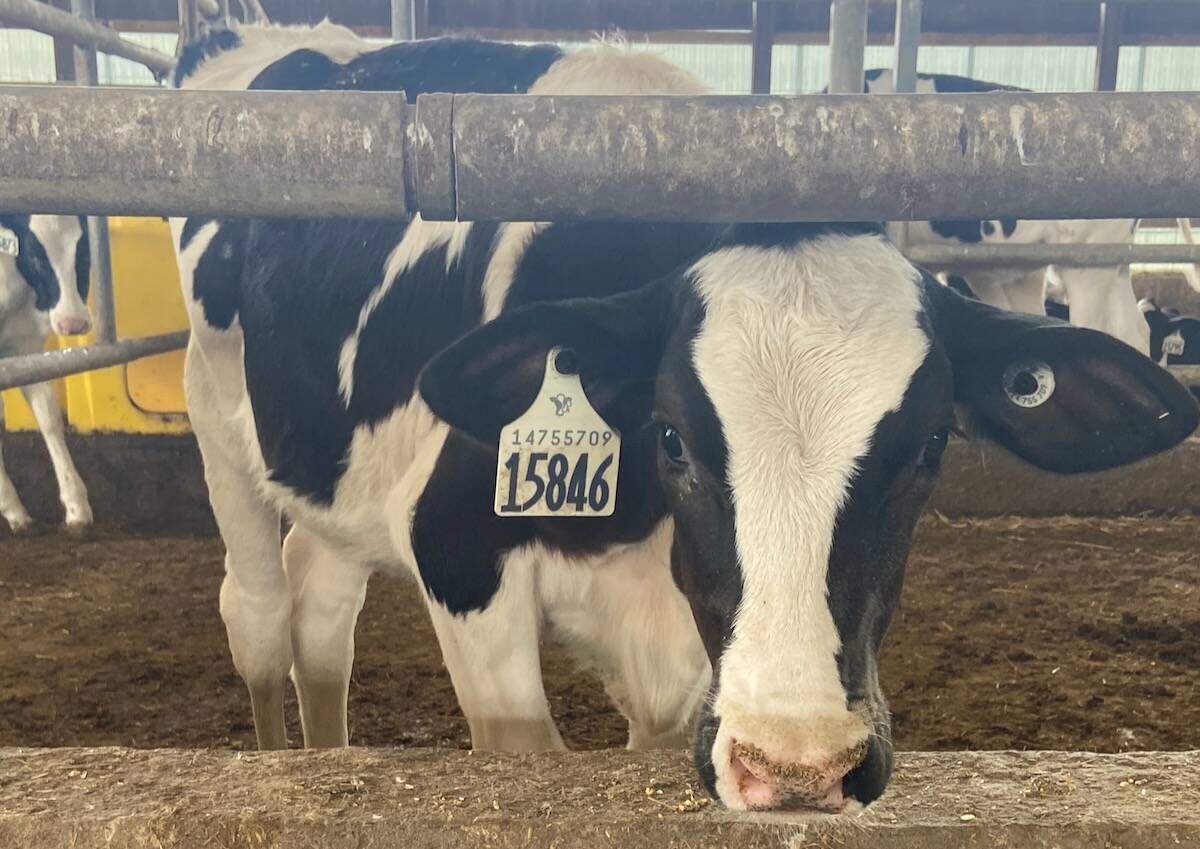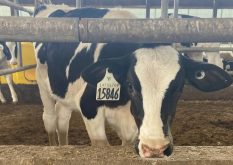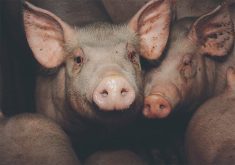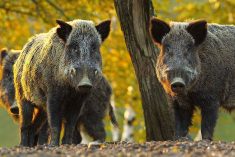Canadian pork industry is taking proactive measures to prevent porcine epidemic diarrhea from entering country, and limiting its spread if it does
‘Shoot, shovel, and shut up’ didn’t work for American pork producers in the fight against porcine epidemic diarrhea, and it won’t for Canadian ones either, says a top swine biosecurity official.
“(The Americans) found out the first case got hidden, and it got spread because it’s so infectious,” Lucie Verdon, national biosecurity co-ordinator at the Canadian Swine Health Board, said at a recent Alberta Pork meeting.
“They’re doing their best now, but it’s already spread to 19 states. This is why Canada is more on the proactive side.”
Read Also

Rural municipalities push legalization of raw milk onto provincial agenda
Drinking raw milk comes with numerous risks, but proponents of a proposed amendment to Alberta’s Food and Drug Act say legalizing its sale could be a boon for small farms in the province.
There have been no reported cases of porcine epidemic diarrhea (PED) in Canada, but producers are on high alert for the disease, which is spread through feces and has swept across the U.S. this year. Infected pigs suffer severe diarrhea and vomiting in pigs of all ages, and is almost always fatal in suckling piglets. There is currently no vaccine.
TGE on steroids
Early symptoms of PED are similar to those of transmissible gastroenteritis virus (TGE) — but the disease is far worse, said Verdon.
“PED is like TGE on steroids,” said Verdon. “It’s like having a ton of TGE on one sick pig. It’s very contagious.”
Although not a reportable disease, the outbreak could become a trade issue if it spreads to Canada, even though meat from infected pigs is safe to eat.
“One of the keys to opening the market in Canada is our health status, and this is another disease that could be a trade barrier,” said Verdon. “It could be, sadly, non-science based, but we know that the Europeans have done it in the beef sector. This is something we don’t want.”
The Canadian pork industry has developed a response plan to limit the spread of the disease should it cross into Canada.
“We’re aiming for biocontainment of the first case. We’re going to try to limit the spread.”
No mandatory quarantine
Alberta’s plan for controlling the spread of the disease is “very different” from H1N1, said Julia Keenliside, veterinary epidemiologist with Alberta Agriculture and Rural Development.
“This time, we’re prepared ahead of time, and we have a plan on how to communicate,” she said.
Producers should contact their veterinarians immediately if they suspect a PED infection. Once a case is reported, all producers and processors in Alberta will be alerted immediately so they can increase biosecurity measures.
The pork industry is also working with processors to allow producers to continue shipping their pigs even if they test positive for the disease.
“We don’t want anyone to have to stop shipping pigs if this disease comes here. We can organize those pigs to go on a Friday afternoon when the plant’s cleaned out to try and reduce the spreading of it through the plant.
“There’s no mandatory quarantine, nobody’s shut down, and nobody’s stopped from shipping pigs.”
Huge advantage over U.S.
But the hope is that Canada’s proactive measures will continue to keep the disease out of the country, Keenliside said.
“We have a big advantage over the U.S. They didn’t know it was coming. It was in seven states before they figured out they had it,” she said. “It’s been there six months, and we’ve kept it out so far. I think that’s a testament to how good our biosecurity is.”
But containment will only be possible if producers report the disease when it first hits their farm.
- “If you do what I call the three S — shoot, shovel, and shut up — you can tell yourself there’s a fourth S, and that’s going to be me saying, ‘St,’” said Verdon.
“If you don’t tell, it’s going to be spread. The Americans tried to do it and it didn’t work, and that’s how they lost it.”














